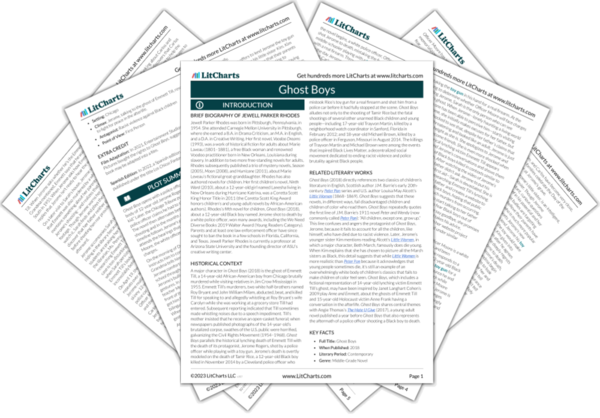AI ToolsNew
Tools to make learning and teaching easier
|
Previous
Dead (p. 3–5)
|
Ghost Boys: Alive (p. 9–16) Summary & Analysis |
Next
Dead (p. 21–31)
|


Upgrade to unlock the analysis and theme tracking for all of Ghost BoysGhost Boys!
Get LitCharts A+